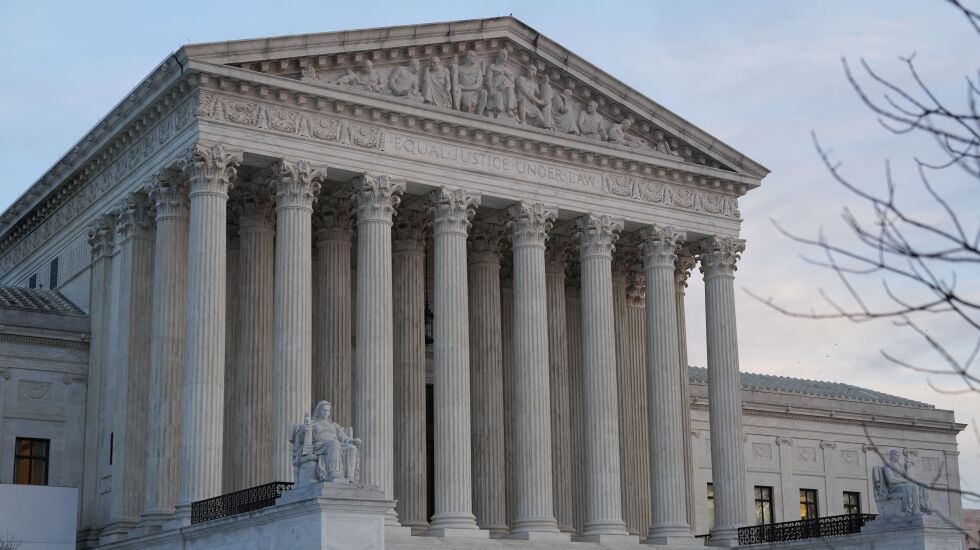
Not so long ago in the United States, a Supreme Court decision to strike down a racially gerrymandered congressional map would not have surprised most Americans.
Section 2 of the Voting Rights Act of 1965 — a law that enjoyed wholehearted bipartisan support for nearly five decades — prohibits the drawing of political districts that give Black Americans “less opportunity than other members of the electorate to participate in the political process and to elect representatives of their choice.”
Since 1986, courts have used the “Gingles test” to determine whether a political map dilutes the votes of a minority group. The map is illegal if three conditions are met:
• The minority group is “sufficiently large and geographically compact to constitute a majority in a single-member district.”
• The minority group is “politically cohesive” (meaning its members tend to vote similarly).
• The “majority votes sufficiently as a bloc to enable it ... usually to defeat the minority’s preferred candidate.”
The congressional map that Alabama state legislators created in 2021 was an obvious violation of the Voting Rights Act in every respect. Yet even the most seasoned legal observers were surprised when the Supreme Court decided last week to strike it down.
After all, the very same court that ruled last week that Alabama’s map violated the Voting Rights Act allowed Alabama to use that very same map for the midterm congressional elections last year.
Furthermore, the Supreme Court has been chipping away at the Voting Rights Act and voting rights in general for the last 10 years, starting with its devastating 2013 decision in Shelby County v. Holder. The decision, which lifted a requirement that states with a history of racial discrimination receive “preclearance” from the Justice Department or a federal court, unleashed a torrent of discriminatory voting laws within hours of its announcement.
In 2018, in Husted v. A. Philip Randolph Institute, the Supreme Court upheld Ohio’s method of purging infrequent voters from the rolls, a process that disproportionately affects voters of color. The same year, after the court upheld most of Texas’ gerrymandered districts in Abbott v. Perez, Justices Clarence Thomas and Neil Gorsuch went even further than the majority and held that the Voting Rights Act does not prohibit racial gerrymandering.
The court’s decision in Brnovich v. Democratic National Committee in 2021 made it much more difficult to challenge discriminatory voting laws under Section 2 of the Voting Rights Act.
Still a need for voting rights reform
The 2020 Census found that over the preceding decade, Alabama’s white population shrank from 67% to 63.1%. while its Black population grew to 27%. The state’s gerrymandered map restricted Black voters from electing their preferred candidate in all but one of the state’s seven congressional districts.
Given the court’s recent track record, its decision on Alabama’s obviously gerrymandered 2021 congressional map was a welcome surprise. A rare win is a win nonetheless, and an overdue affirmation of the nation’s obligation to protect our most sacred constitutional right.
As a civil rights organization dedicated to economic and social justice, the National Urban League recognizes that unfettered access to the ballot box is essential to achieving the equitable, inclusive, “more perfect union” that we seek.
The decision does not let Congress off the hook, however. In fact, the narrow margin of victory makes passage of comprehensive voting rights reform measures all the more urgent. The John Lewis Voting Rights Advancement Act would restore the full protections of the Voting Rights Act. The nation’s future as a multiracial democracy depends on it.
Marc H. Morial is president and CEO of the National Urban League. He served as mayor of New Orleans from 1994 to 2002 and is a graduate of the University of Pennsylvania and the Georgetown University Law Center.
The Sun-Times welcomes letters to the editor and op-eds. See our guidelines.







